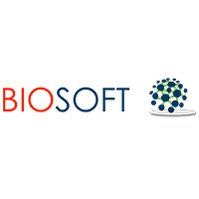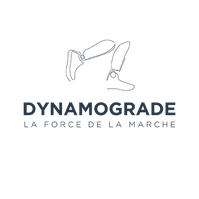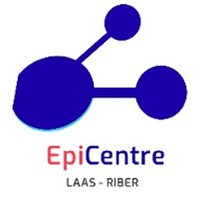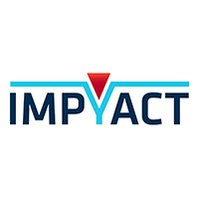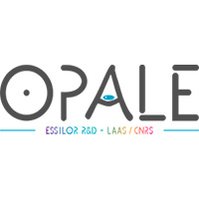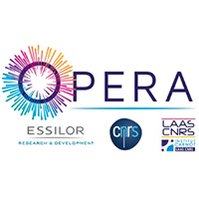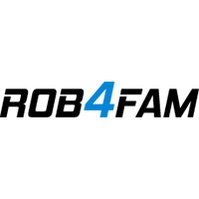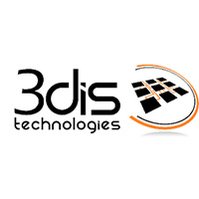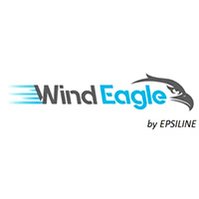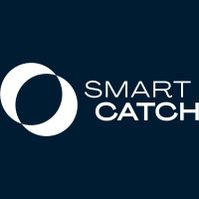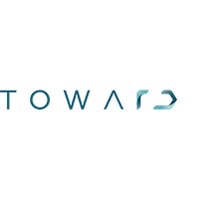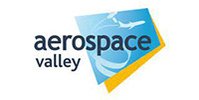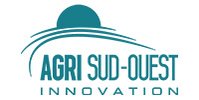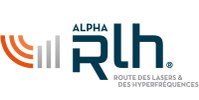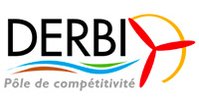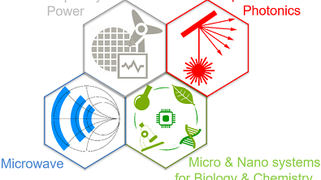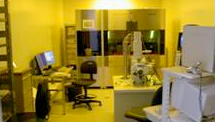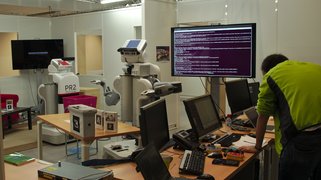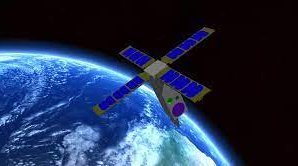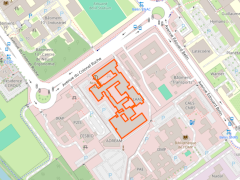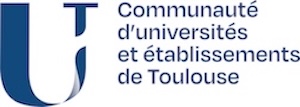Innovation
The laboratory DNA
A long tradition of partnership and innovation.
The development of academic and industrial partnerships, at national, European and international levels, has always been part of the laboratory's DNA. It is also an essential vector for the transfer of research results and technologies created at LAAS-CNRS to achieve public benefit and economic development et to strengthen our collaborations with other universities and academic partners.
LAAS-CNRS is strongly involved in setting up and participating to interdisciplinary collaborative projects aimed at structuring and federating research activities carried out in at the level of the university of Toulouse (TIRIS, ANITI, CIMI, …), the Occitanie Region (Défis clefs, PRRI, etc.) and at national level (PEPR, EQUIPEX, etc.). It has also strong industrial collaborations that can take different forms, including the setup of joint laboratories for medium- or long-term partnerships.
The laboratory has always forged strong links with industry through CIFRE theses, collaborative projects and the original form of joint laboratories, a concept that originated at LAAS-CNRS. It is also heavily involved in a number of industrial and competitiveness clusters.
Numerous collaborations and partnerships have been setup with major groups as well as with ETIs, SMEs and start-ups. The laboratory's research is applied to a wide range of fields: aeronautics, space, automotive, health, environment, digital, defense, energy, agriculture, etc.
Various
Various types of collaboration are possible:
- Research contracts, as part of a research collaboration including CIFRE PhD theses and joint laboratories
- Service provision contracts, for the application of know-how without associated research contribution, or to carry out technological developments and analyses in our open platforms
- Consultancy, to benefit from the expertise or advisory support of the researchers or engineers ofour laboratory.
The content of these collaborations is discussed with the researchers for the scientific aspect and with our engineers for technological developments within the platforms. Two “Business developers” transfer engineers are in charge of developing our industrial partnerships, on the one hand in the field of micro- and nano-technologies and characterization in the appliucation areas of health, environment and energy transition, and on the other, in the field of robotics. They are available to help us meet the needs of our partners and find the right contacts in the laboratory, as well as to prospect new partnerships.
The contractual and partnership framework, including all legal aspects such as industrial property, is handled by the laboratory's Contractual Relations and Partnerships (RCP) department in conjunction with the Partnerships and Valorization (SPV) department of the Occitanie-Ouest regional delegation of the CNRS.
We also benefit from the support of SATT Toulouse Tech Transfer and CNRS innovation, for prematuration, start-up, patent registration and exploitation of our research results.
A "Valorisation cell" bringing together all these skills has been set up to help our partners analyze their projects and find the right contacts in the laboratory, and the best way to collaborate and contract with the laboratory's teams.
For any questions about industrial collaborations with LAAS, please send an email to:
- Mohamed Kaâniche, AAS Director, in charge of industry patnerships
- Johanna Roquet, Head of « Contractual Relation and Partnerships »
- Rislène Kourdi, Business Developer - Micro, nano technologies and Characterization
- ,Business Developer — Robotics
JOINT LABORATORIES
A concept originating from LAAS-CNRS, a joint laboratory is a research collaboration between one or more laboratories and a manufacturer, with a minimum 4-year renewable agreement.
START-UPS
Many start-ups have emerged from the laboratory, including :
COMPETITIVINESS CLUSTERS
INDUSTRIAL CLUSTERS
PROJECTS PARTICIPATION
STRUCTURING
LAAS-CNRS is involved in several structuring projects at national (PEPR, Equipex...), regional (Clefs challenges, PRRI) and local (Aniti, Cimi, TIRIS...) level.
PEPR : Priority research programs and equipment
PEPR projects are part of the new national research management tools introduced by the French government as part of the France 2030 strategy, dedicated to funding fundamental research (TRL 1 to 4). Their aim is to build or consolidate French leadership in scientific fields linked to technological, economic, societal, health or environmental transformation, and which are considered priorities at national or European level.
LAAS-CNRS is involved at various levels in the following PEPRs:
- Electronics
- Cybersecurity
- Robotics
- 5G and next generation networks
- Advanced Technologies for energy systems (TASE)
- MolecularArXiv- DNA-based storage
- SPIN - Spintronics innovations for a frugal, agile and sustainable digital economy
- Quantum technologies
- eNSEMBLE- Future of digital collaboration
EQUIPEX+ : Structuring research facilities
This PIA3-funded program aims to invest in scientific equipment that will help structure research and meet the highest international standards. CNRS is involved in a large number of projects, and is coordinating sixteen of them that target major scientific challenges, ranging from astronomy to biodiversity and digital technology.
LAAS-CNRS is a partner of the following projects:
- TIRREX: Technological infrastructure for research excellence in robotics
- NanoFutur : Investments in nanomanufacturing for the nanotechnologies of the future
- Terra Forma : new sensors to understand and respond to environmental challenges
CNRS GDR Scientific animation « Groupements de Recherche »
The GDRs are CNRS research clusters designed to promote exchanges between CNRS scientists, academic partners, companies and other stakeholders.
LAAS-CNRS co-leads the following GDR:
- MACS : Modeling, Analysis and control of dynamic Systems
- ROD : Operation research and decision-making
- MNF : Micro and Nano Fluidics
- OERA : Organic Electronics for the new Era
Occitanie Region
Key Challenges Projects « Défis Clefs »
These projects, funded by the Occitanie region, aim to federate and strengthen regional research in strategic areas. With a budget of €2M for a 5-year period, these projects aim to stimulate upstream research, develop training and strengthen collaboration and innovation with industry.
Le LAAS-CNRS is involved at different levels in the following projects:
- Human-centered robotics
- ICO - Institute for Cybersecurity in Occitanie
- IQO - Institute for Quantum Technologies in Occitanie
- Photovoltaïcs in non standard conditions (PVStar)
- MIDOC – Smart and sustainable mobility in Occitanie
- RHYO - Hydrogen research and innovation cluster in Occitania
At the level of the University of Toulouse
INTERNATIONAL COLLAB
LAAS-CNRS is involved in several structuring projects at national (PEPR, Equipex...), regional (Clefs challenges, PRRI) and local (Aniti, Cimi, TIRIS...) level.
The international visibility of LAAS-CNRS is the result of a sustained effort. The collaborations are common with EU countries under the European commission framework programs (Horizon Europe, …). European projects account for around 20% of the laboratory's own resources, with a wide variety of project types (ERC, collaborative research projects, doctoral training networks and MSCA postdoctoral fellowships, etc.). Collaborations are also developed with countries in North America (USA, Canada), Latin America (Argentina, Brazil, Chile, etc.), Asia (Japan, Singapore, etc.) and Oceania (Australia). Overall, more than a third of the laboratory's publications are co-authored and stem from international collaborations. In addition to doctoral and post-doctoral students, every year LAAS-CNRS welcomes around ten foreign researchers for stays of more than two months.
LAAS-CNRS is developing close collaborations with the CNRS's IRL "International Research Labs", which are closely related to the laboratory research themes. This is notably the case with LIMMS (Laboratory for Integrated Micro-Mechatronics Systems) in Tokyo, in the field of micro-nano technologies for bio-engineering and bio-sensors. This collaboration has resulted in more than a dozen exchanges of researchers, engineers, PhD and post-doctoral students since 2019, with a sharp increase in the last 5 years and numerous joint projects. This collaboration is currently being formalized in the form of an international project team.
LAAS-CNRS ERC -- European Research Council-- grants:
Starting Grant - Morgan Delarue (2022-2026)
UnderPressure : Elucidating the phenotypic convergence of proliferation reduction under growth induced pressure
- Advanced Grant - Carole Rossi (2019-2024)
Pyrosafe: nano-ingénierie de couches réactives versatiles et intégration dans des systèmes électroniques pour la sécurité - Proof-Of-Concept Grant - David Pech (2022-2023)
3D-APP : High-energy micro-supercapacitors based on low-cost materials - Consolidator Grant - David Pech (2018-2022)
3D-CAP : 3D micro-supercapacitors for embedded electronics - Advanced Grant - Jean-Bernard Lasserre (2015-2019)
Taming : Domestiquer la non convexité ? - Advanced Grant - Jean-Paul Laumond (2014-2018)
Actanthrope : Explorer les fondements calculatoires de l'action anthropomorphe
PLATFORMS
The LAAS-CNRS is part of many structuring regional, national and international projects.
